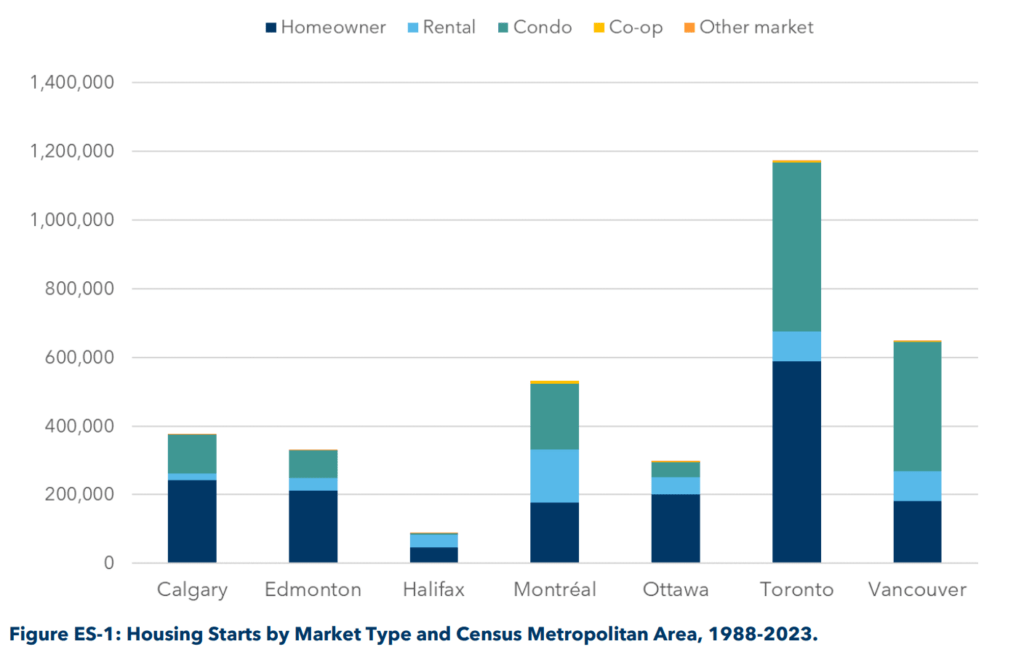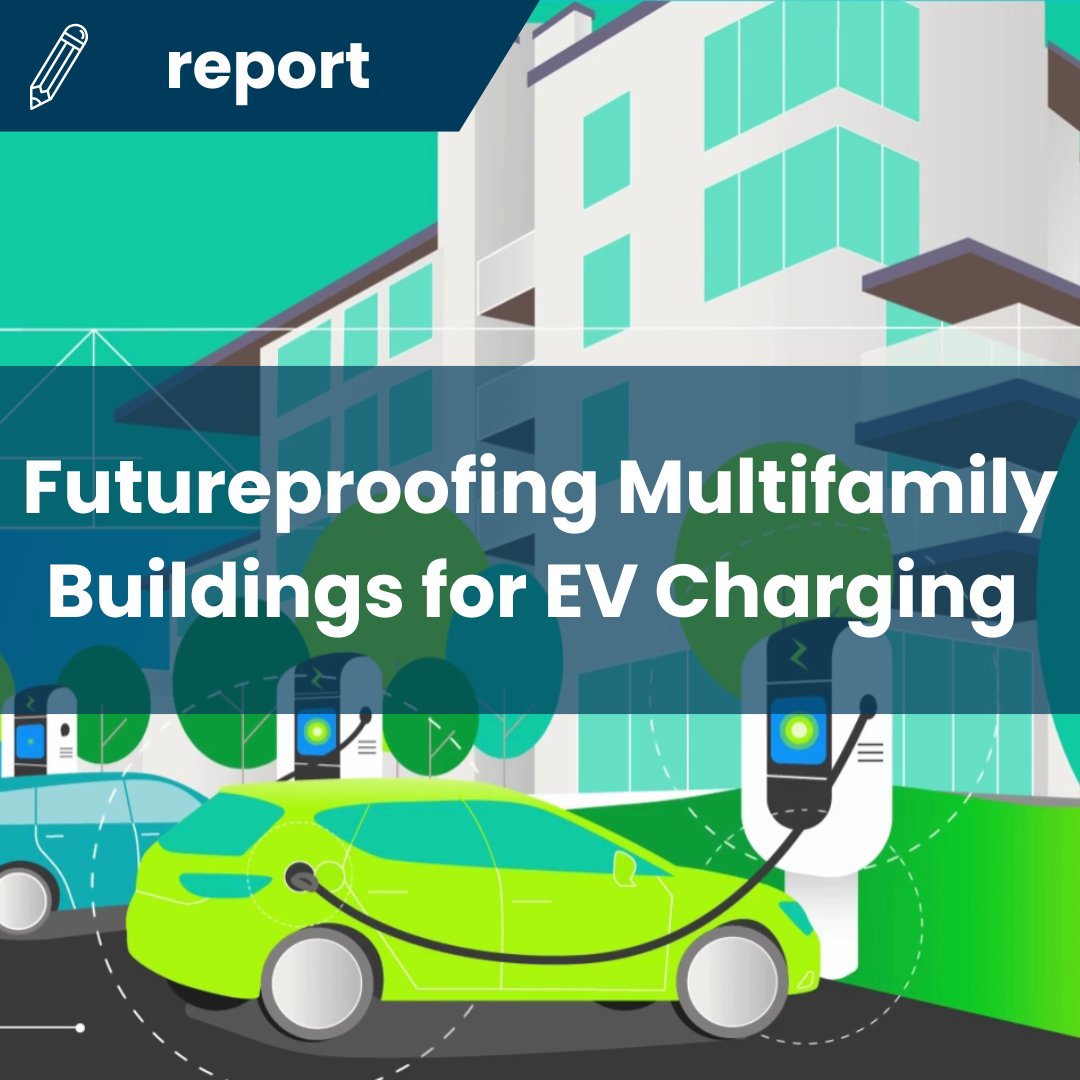Author/Contributor: Dunsky Energy + Climate Advisors, LC3, the Green Municipal Fund (GMF)
Alberta Context: This report was created in Canada and is not specific to Alberta. It mentions that Alberta’s condo regulations offer limited guidance on common property, leaving much up to individual condo bylaws. The report includes an overview of the approval process for condos when approving EV charging infrastructure projects and details the requirements for Alberta.
Summary:
This report provides information, analysis, and recommendations to support the development of strategies to increase access to “at-home” electric vehicle (EV) charging for Canadians in multi-unit / multifamily housing.
Canada’s goal is for all new passenger vehicles sold by 2035 to be Zero-Emission Vehicles (ZEVs), effectively mandating EVs. While home charging is typically the most cost-effective and convenient, it poses challenges for multifamily homes not designed for EV charging. About one-third of Canadians live in multifamily buildings, a proportion that reaches nearly half in urban centers and is growing. Most multifamily buildings in Canadian metro areas are condos, with a notable number of rental apartments, co-ops, and other residences – see image below for Calgary and Edmonton statistics.

Image from: page i, Futureproofing multifamily buildings for electric vehicle (EV) charging
Access to home charging is crucial for households considering an electric vehicle (EV) as their next purchase, and for building and condo owners, it adds a valuable amenity. Additionally, reliable access to charging in multifamily buildings addresses an equity issue, as low-income and racialized people are more likely to live in these buildings. EV charging infrastructure can also support shared mobility services like car-sharing.
Currently, unplanned, or staged implementation of EV charging in multifamily buildings is the most common way charging is implemented, and is costly and may not support future expansion. A shift to comprehensive futureproofing is needed to avoid high costs and delays in EV adoption.
Read the full briefing and report at the links.


